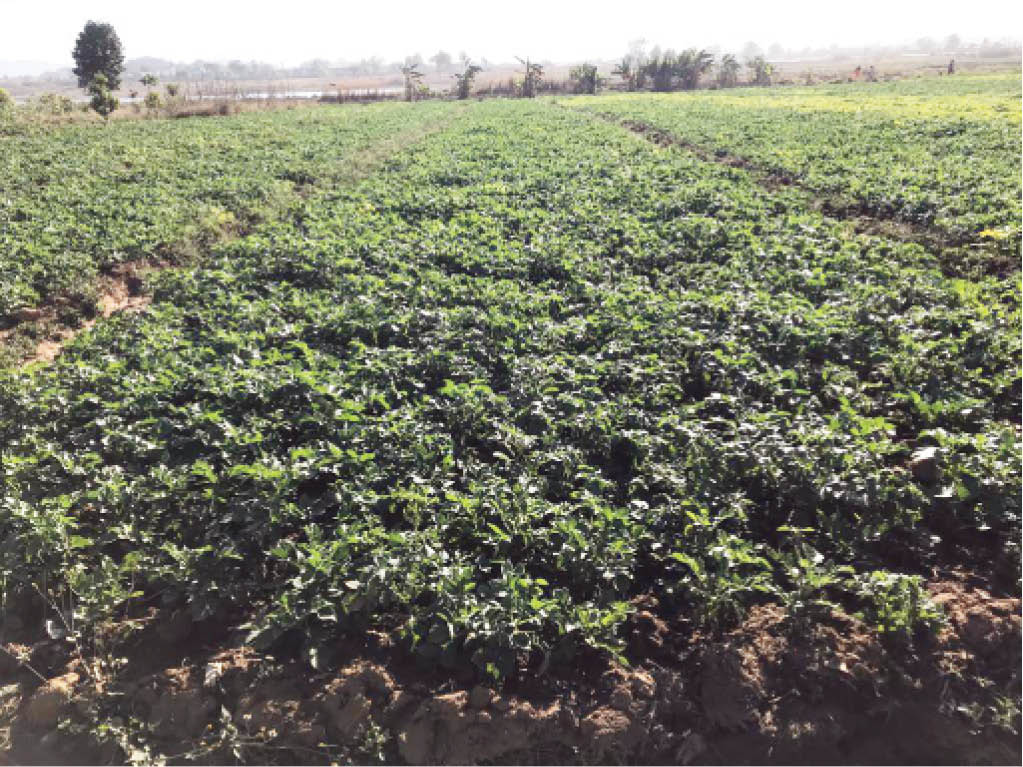Plateau State is Nigeria’s number one grower of Irish potato with the tuber currently produced in nine of the state’s 17 local government areas.
The Potato Value Chain Support Project of the African Development Bank (AfDB) initiative pegs Plateau as accounting for 90 per cent of the potato production in the country with countries like Chad, Ghana, Niger, Benin among others receiving large supplies of potato from Nigeria.
- Kano: Hisbah commander arrested with married woman in hotel
- FCT minister wants Apo-Karshi road opened before rainy season
The large potato production from Plateau State, according to PotatoPRO.com, a leading information source for the global potato industry, has made Nigeria the fourth biggest producer in sub-Saharan Africa.
However, farmers say inadequate dams and road networks, and high cost of fertilizer and other farming inputs continue to pose a major setback in the production of sufficient potatoes for the nation and for export. Other challenges contributing to low yields and harvest losses to the potato value chain include diseases such as blight and bacterial wilt as well as poor seedlings.
According to the National Bureau of Statistics, Plateau State is among the 10 poorest states in Nigeria with over 70% poverty rate. The state, however, has a comparative advantage to boost economic activities by improving the competitiveness of the potato commodity value chain.
The Project Coordinator for the Potato Value Chain Support Project, Thomas Muopshin, said though the viability of the tuber crop is evident in nine local government areas of Plateau, Bokkos and Mangu LGAs are the state’s potato hub. They produce more potatoes than any LGA in the country.
Muopshin, however, said adaptability research indicates that the state’s remaining eight LGAs are equally viable to produce potato; making all of Plateau’s 17 LGA potentials to produce the tuber, especially during the dry season.
The Association of Potato Farmers (APF) in the state, however, says unless challenges affecting the value chain are addressed squarely, increased production and export in potato would continue to elude the nation.
Plateau State Chairman of APF, Lazarus Makut, in an interview with Daily Trust, said inadequate smaller dams, especially in remote areas where potato farming is viable as well as poor roads and high cost of farm inputs, continue to affect potato outputs.
He said the cost of mechanised farming which could rapidly increase productivity has become expensive with the majority of farmers who are small scale producers unable to afford mechanization.
Another farmer, Martha Mamgup, who grows potatoes in Ampang town in Mangu LGA, said inadequate water during the dry season affects potato farmers and leads to annual low yield. Because of this, she said, the majority of farmers search for borehole locations to farm to access irrigation water for their farms.
Martha explained also that the high cost of fertiliser prevents many farmers from improving quantity and quality of yield, adding that “insufficient fertiliser affects the crop’s output. The cost also prevents many of us from expanding the business. So, getting fertiliser has not been easy for us.”
She said the construction of more dams and boreholes for irrigation would lead to mass production of potatoes. “If the water is not sufficient for the crop, it would dry and eventually die and that is why some farmers who have the resources prefer to dig boreholes in Mangu purposely for irrigation because, without it, dry season farming becomes difficult,” she said.

Production to reach 7million metric ton after lab completion
With Plateau State’s potato production jumping from 1,656,650 metric tons in 2017 to 2,359,890 metric tons in 2020, the establishment of the Potato Value Chain Support Project and the construction of the tissue culture lab are expected to cause the tripling of production to over seven million metric tons by the end of 2021.
The Monitoring and Evaluating officer of the state’s Potato Value Chain Support Project, Baleri Yakubu, told Daily Trust that the state is expected to commence production of six million metric tons of potato annually after the tissue culture lab is completed at the end of 2021 but expressed optimism that production could exceed seven million metric tons annually.
Yakubu, however, said the state government should tackle other challenges faced by farmers especially those of fertiliser as well as more dams and road networks while farmers are expected to properly apply potato farming regulations to achieve the expected target.
Our correspondent gathered that the tissue culture lab, which is intended to improve potato yields in the state by providing clean seed which is resistant to pests and other potato-related diseases, is expected to commence operation fully in a few months.
Yakubu said the advent of the lab would certainly improve income for farmers and revenue for the state government while also aiding food security effort in the country.
Farmers in Plateau State, however, believe that the tissue lab, if fully equipped, would largely reduce the cost of treatment for the crops when they were affected by any disease. They also hope that better quality seed would be available at an affordable price.

 Join Daily Trust WhatsApp Community For Quick Access To News and Happenings Around You.
Join Daily Trust WhatsApp Community For Quick Access To News and Happenings Around You.

